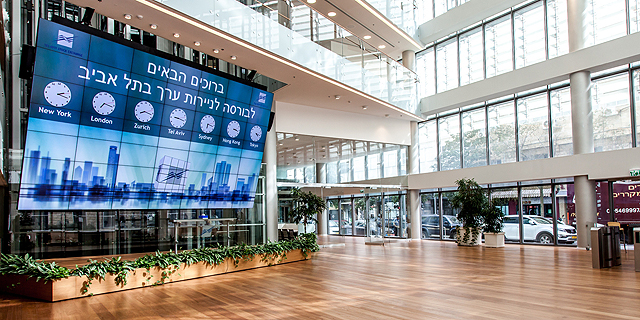
Analysis
A bubble in the making? The Tel Aviv Stock Exchange is experiencing a record year
The public may remember 2020 as a year of unemployment and lockdowns, but investors have put pedal to the metal with 25 companies going public, earning an average return of 34%
Yaniv Rahimi | 13:29, 19.01.21
“So have you taken the plunge and invested yet? Have you made the big hit? Have you figured out the system yet?” Whether you responded positively to all this with a grin that you can't seem to wipe off your face, or whether you’re “on the fence” with a doomsday grimace that’s hard to hide, you must have heard of the rally the venture capital market has experienced in recent weeks; and there are signs indicating this isn’t just another rise, it’s a market bubble.
Market bubbles are when an economic cycle sees a rapid escalation in market value, mainly in the price of assets. Like its predecessors, it can keep on inflating, and like others, it may explode in our faces. All market bubbles have similar characteristics, and only the names change - of the bubbles and of the investors who discovered for the first time in their adult lives what happens when hot air has nowhere to go.
The Israeli public will remember the year 2020 as the year of the coronavirus (Covid-19) pandemic, unemployment, and lockdowns. Investors on the Tel Aviv Stock Exchange will recall 2020 as a record year with the highest number of initial public offerings since 2007. Last year, 25 new companies conducted IPOs, two new companies were added in double-listings and five new companies were listed via SPAC.
So what’s happening here? In the past we read headlined maligning that “the stock market is drying up,” but now that’s is coming back to life isn’t this a good thing? The answer is simple. The fact that a drought is a curse doesn’t turn a flood into a blessing. Just like a dividend distribution is a positive move for stockholders to share the fruits of the company’s success, an aggressive dividend policy can be destructive. While companies joining the stock exchange is good news, at a certain point it can indicate that the winds of change have begun blowing bubbles our way.
Under favorable circumstances, new companies will issue shares only after they’ve passed through a fine sieve. Without making blanket statements about the 25 newcomers, 70% of whom were issued during the last third of 2020, the quantity may indicate their quality. The fact that these shares yielded average returns of 34%, with four of them more than doubling their listing prices, indicates that investors have lifted their foot off the brakes and put pedal to the metal.
Why is this happening? Sometimes there are new models for pricing tech companies, sometimes it’s because low interest rates raised real estate prices. Every bubble has an explanation that sounds reasonable while it’s inflating, and completely illogical after it bursts.
At the moment, 13 Israeli companies are set to join the stock market this year - that’s only half of those issued in 2020, but we’re still only in January. Forecasters would say that “those winds are expected to get stronger.”
Those same winds bringing about a flood of IPOs are also caressing conservative investors, who are firmly holding onto their short term deposits. But with the discrepancy between the zero interest rates on deposits and the dreamlike returns, it should come as no surprise that the public is moving from safety to speculation. This isn’t necessarily a negative development. The capital market is a worthy alternative to saving and investing, and the fact that the market is “hot” doesn’t necessarily mean that it won’t reach “boiling.” But past events signal that three factors are working against conservative investors. First off, capital market sharks were the first who identified opportunities that the pandemic had created, and decided to jump into the icy deep end in March 2020. The conservative investors meanwhile enjoyed sipping their tea and thanked the good god that they weren’t like the stock market savages, who gamble. It’s unpleasant to arrive late to the party, but it also isn’t the end of the world if you make it to the after party. The problem is that new investors will miss that excess layer, which accumulated in the March rally, once they realize that the wheels have turned. Second of all, appetites grow when food is on the table, and when profits are on the menu, the appetite for risk tend to grow. An investor who may have thought twice before investing his or her first NIS 20,000 ($6,000) in the market, won’t hesitate before putting down NIS 200,000 ($60,000) from their savings, after “a successful spin of the wheel.” That’s how solid investors make penny-gains and lose thousands. Third, when the trend changes, conservative investors won’t stand the losses and will return to their familiar short term deposits. “This stock isn’t rising,” they’ll tell themselves, “but it’s also not declining.” The last to enter the market when it rises will also be the first cash out when it drops. And that’s why those who stress over their money, will come out empty-handed in both cases. They’re both late to the party, and aren’t planning on staying for the after party, which always comes at some point.